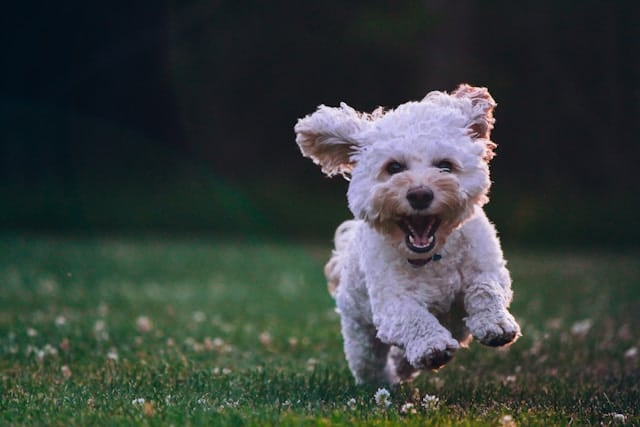Having a baby is a life-changing event, and that’s just as true for your dog as it is for you. Even before your baby arrives, your pregnant dog will be undergoing major physical and behavioral changes. It’s essential to adjust your dog’s training routine to accommodate these changes and ensure both her health and the health of her puppies.
Recognizing the Signs of Pregnancy in Your Dog
Understanding that your dog is pregnant is the first step in adjusting her training routine. Dogs, like humans, undergo noticeable physical and hormonal changes during pregnancy. Recognizing these signs will help you accommodate your dog’s changing needs.
Also to see : What’s the Best Way to Address Resource Guarding in Dogs?
Your dog’s behavior may start to change as early as the first week of pregnancy. She may become more affectionate or, conversely, more distant and aloof. By the third week, her appetite will increase, and you might notice some weight gain or swelling in her abdomen.
It’s essential to consult a veterinarian to confirm pregnancy. They will carry out tests and guide you on the necessary care for your dog during this period. Once the pregnancy is confirmed, you can start adjusting your dog’s daily routine.
In the same genre : What Are the Key Considerations for Feeding a Diabetic Cat?
Modifying the Training Routine
As your dog’s pregnancy progresses, it will become crucial to adapt her training routine. High-intensity training regimes may not be suitable anymore. Instead, it’s essential to focus on low-impact, stimulating exercises that will keep your dog fit without straining her body.
Switch from high-intensity games like fetch and agility training to gentler activities like walking and light play. Keep the sessions brief and frequent rather than long and strenuous. Staying active can help your dog maintain a healthy weight during pregnancy and can make the birthing process easier.
Keep in mind that your dog’s energy levels will fluctitate during this time. She may not always be willing to participate in even light exercise. It’s crucial to listen to her body and not force her to train when she’s not up to it.
Managing Your Dog’s Diet and Health
A crucial piece of managing your dog’s pregnancy involves monitoring her diet and health. Your dog’s nutritional needs will change during pregnancy, and she may require more food or specialized dog food.
Consider providing your pregnant dog with food that is rich in essential nutrients like folic acid, calcium, and iron. Your veterinarian will likely recommend a high-quality puppy food, as it contains higher levels of these nutrients.
Regular health check-ups are also a must. Pregnancy can lead to health complications in dogs, such as gestational diabetes or eclampsia, and regular veterinary care can help detect and manage these conditions.
Preparing for the Arrival of the Puppies
As your dog’s due date approaches, it’s time to prepare her, your family, and your home for the arrival of the puppies. You’ll want to train your dog to accept the changes that will come with the puppies’ arrival. This includes setting up a whelping box where she can comfortably birth and care for her puppies.
Spend time getting your dog accustomed to the whelping box before the puppies arrive. Encourage her to sleep or rest in it regularly.
Also, it’s a good idea to introduce changes to the household routine gradually. If you’re planning to restrict your dog’s access to certain parts of the house or bring in new furniture, start making these changes well before the due date.
Fostering a Relationship Between Your Dog and the Baby
Introducing a new human baby into a home with a dog can be challenging. Dogs can feel insecure and threatened by the new attention that the baby receives. Training your dog to feel comfortable and secure around the baby is a vitally important task.
Before the baby arrives, start training your dog to be calm and relaxed around baby-related items, such as a crib or stroller. You can also play sounds of a baby crying to help your dog get used to the new noise.
When the baby arrives, give your dog time to adjust to the new family member. Allow her to sniff the baby under supervision and reward calm behavior with treats and praise. This can help foster a positive association with the baby.
Remember, pregnancy is a significant event in your dog’s life, just as it is in yours. Patience and understanding will go a long way in helping your dog adjust to the changes that come with pregnancy and the arrival of puppies. Reach out to a professional dog trainer or your veterinarian for personalized advice tailored to your dog’s breed and personality.
Understanding Your Dog’s Behavioral Changes During Pregnancy
When your dog is pregnant, her behavior may significantly change due to hormonal fluctuations. This goes beyond the physical signs of pregnancy and may comprise emotional and psychological shifts. Recognizing and adapting to these changes are pivotal to ensuring a smooth pregnancy for your pet.
During the initial weeks of pregnancy, your dog might seem unusually tired or disinterested in activities she usually enjoys. She may also show signs of morning sickness, similar to human pregnancies, which can include lethargy and a lack of appetite.
Further into her pregnancy, your dog could become more clingy or anxious. She might also display nesting behaviors, such as hoarding toys or other items and trying to create a safe space to give birth. This is when a whelping box can be introduced as a safe zone for her.
It’s important to note that these behavior changes will vary from dog to dog. They will also be influenced by the breed and personality of your dog. Some dogs may breeze through pregnancy with minimal behavioral changes, while others may show significant shifts in their behavior. Always remember to consult your veterinarian for expert advice on handling these changes.
Conclusion: Navigating Your Dog’s Pregnancy with Care and Patience
Handling a dog pregnancy is a unique and rewarding experience. However, it also comes with its challenges and requires patience, understanding, and lots of care. The key is to remember that your dog’s needs during pregnancy will be different from her usual ones, and it’s your responsibility to provide an environment where she feels safe and comfortable.
Regularly consult with your veterinarian throughout the pregnancy to ensure your dog’s health is in optimal condition. Make the necessary changes in her exercise routine, diet, and training to accommodate her changing needs. Prepare your home for the arrival of the new puppies and ensure your dog feels secure with the changes.
Finally, pay attention to your dog’s behavior during pregnancy. Understand that she will go through hormonal changes that might affect her mood and behavior. Be patient and responsive to her needs during this time. Remember, these changes are not permanent and are just a part of the natural process of pregnancy.
Ultimately, the goal is to ensure that both your dog and her puppies are healthy and happy. With the right care and preparation, you can successfully navigate your dog’s pregnancy and welcome the new additions to your family.






